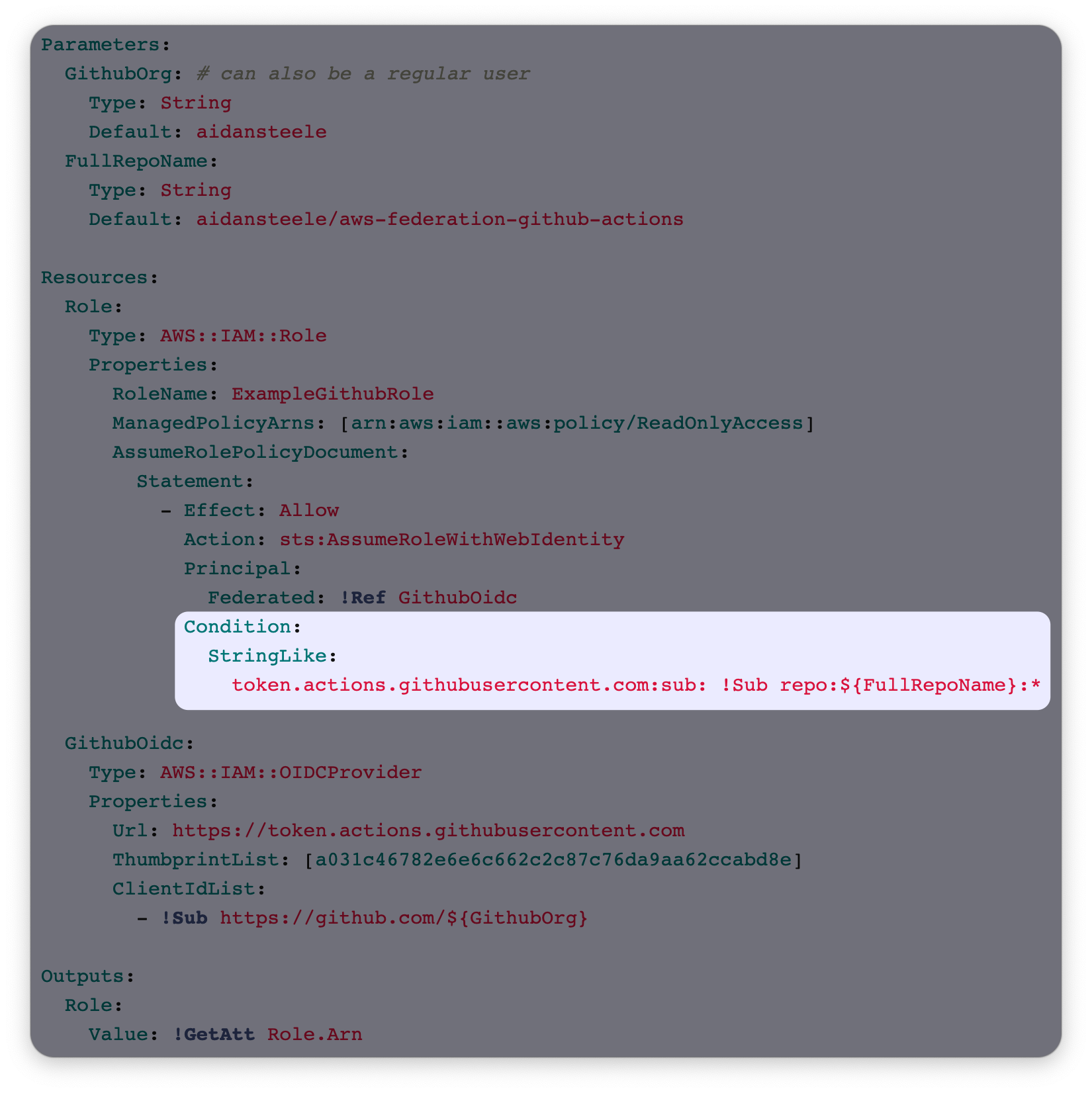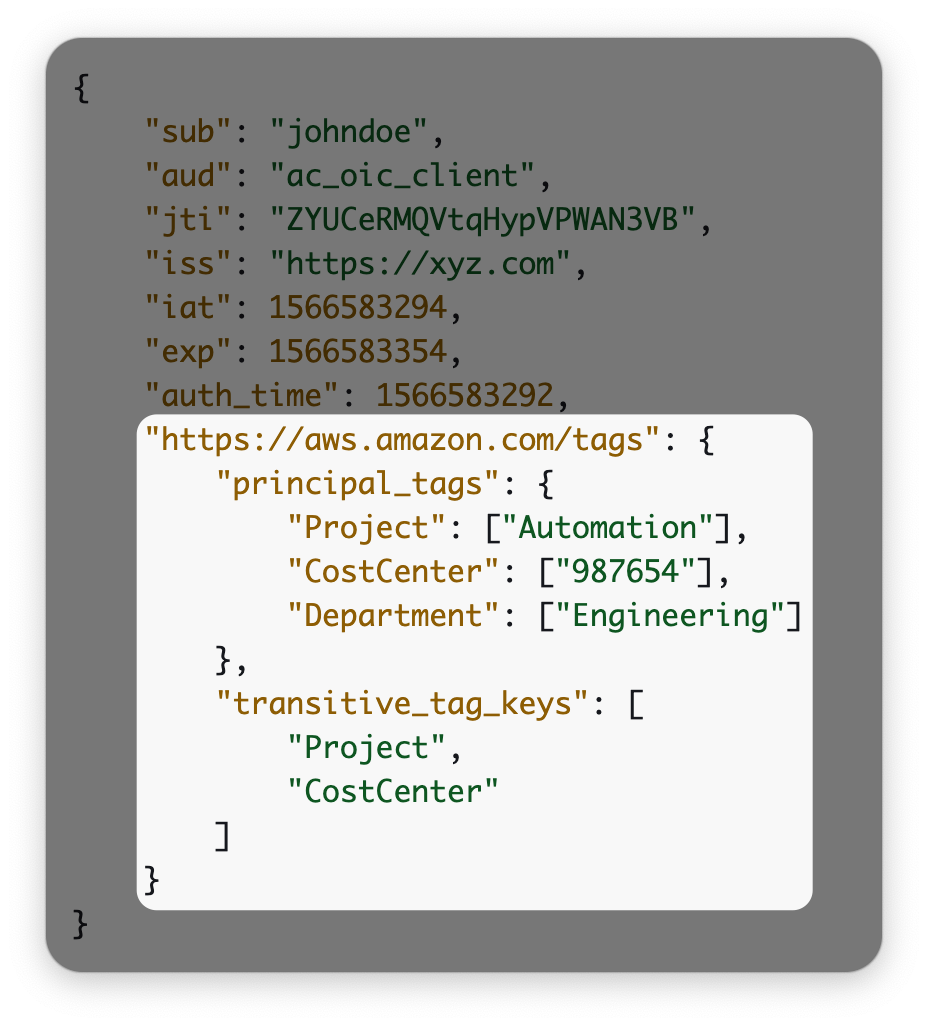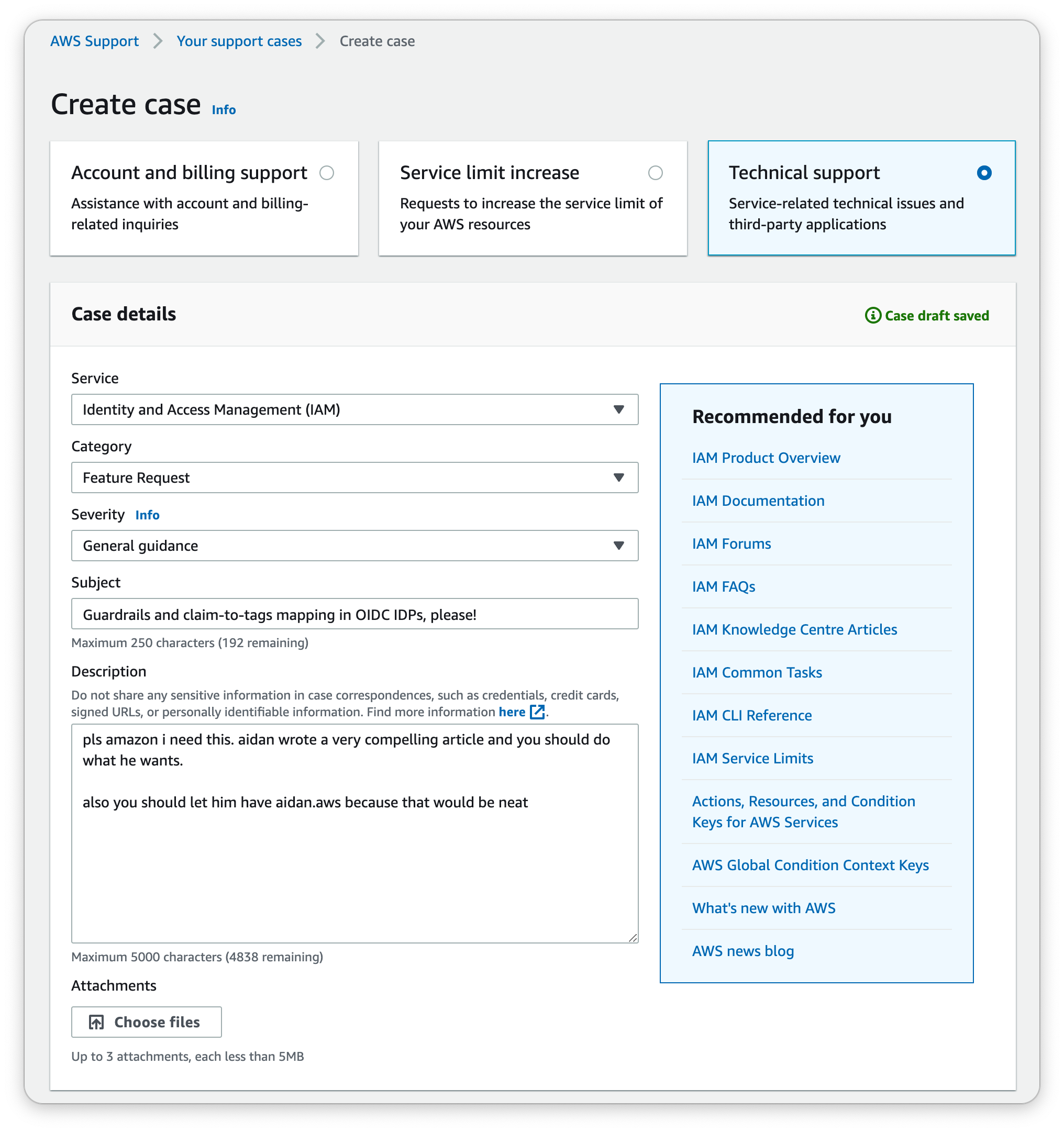AWS IAM OIDC IDPs need more controls
Background primer¶
In my post AWS federation comes to GitHub Actions I wrote about GitHub Actions' new ability to federate access into AWS (and other clouds) via OpenID Connect. This is really great, much better than the prior state of affairs, but needs improvement on the AWS side.
Today, AWS IAM OIDC identity providers have a few configuration options:
-
URL: this is specified at OIDC IDP creation time, immutable and must be unique on a per-AWS account basis. Corresponds to the
issclaim in OIDC tokens. -
Client ID list: this is specified at creation time, but also mutable and can added to or removed from after the fact. Corresponds to the
audclaim in OIDC tokens. -
Thumbprint list: this is specified at creation time and can be updated after the fact. This is a security measure to ensure that MITM attacks between AWS and the IDP cannot occur, nor can an attacker register an expired IDP domain and gain access to your account.
-
Tags: mutable, not super interesting as the functionality is free and there are only very rarely multiple OIDC IDPs in any given account.
The above is the full extent of what exists today. I think it's insufficient, especially in light of the wide interest in GitHub Actions' support and EKS' (AWS hosted Kubernetes service) dependence on OIDC.
My requests¶
Centralised control and guardrails¶
In the previous blog post, I shared an example CloudFormation template for using the GHA OIDC feature. It looks like this:

I have highlighted the most important part of the template. When this blog post
was first published, that condition was technically optional (in the sense that
everything will work without it) but devastating if it was omitted. It is the
only thing that controls which repositories on GitHub are authorised to assume
this role. (GitHub allows configuration of the aud claim, so the ClientIdList
property of the OIDC IDP is not a security control.) Since then, AWS has made
the condition mandatory. Scott Piper over at Wiz has a great write-up
on the happy ending.
Many AWS customers now allow developers to freely create IAM roles, thanks to permission boundaries. There is no analogue to permission boundaries for role trust policies - so once the GitHub IDP exists in an account, administrators have no way to enforce that it can only be used by particular GitHub orgs.
The same problem exists for Kubernetes: once the IDP exists in an account, there is no way for administrators to enforce that roles in that account can only be used by particular Kubernetes namespaces.
Request: something equivalent to permission boundaries for role trust policies.
Really, anything. It could be "trust policy boundary" policies that are attached
to individual roles with conditions mandating attachment in iam:CreateRole
and iam:UpdateAssumeRolePolicy. Or it could be policies that are attached
to the OIDC IDP IAM object itself. I haven't thought about which is preferable,
but something is needed.
Claim-to-tag mappings¶
Update: This doesn't exist in AWS IAM yet, but it can be achieved via AWS Cognito. I wrote a follow-up blog post that explains how to achieve it.
AWS IAM has supported role session tags for a while now. Have you ever looked at how they work for roles bootstraped from OIDC IDPs? Here's what needs to go in the JWT issued by the IDP:

Do you ever see GitHub Actions supporting this? Or any social network? Or GitLab? Not even AWS EKS vends ID tokens with this claim namespace. I can't think of any use case for this design. If you have that much control over the format of the JWTs, you're probably issuing them yourself. In which case, why not assume a role directly? Anyway, I digress.
Request: Give me a way to map arbitrary claims from the OIDC token to
role session tags in AWS. The tokens issued by GitHub have some extremely
useful information and I want to use it in my policies. I also want those
values to appear in CloudTrail. Hell, they should be usable in the above request
for trust policy boundaries: maybe roles should only be assumable for
workflows initiated by aidansteele.
Again, these could be configured on either a per-role basis or as a property of the OIDC IDP object. I'm erring towards the latter in this case. It's the kind of thing you want consistency in. And again, this would be useful for EKS.
Wrap up¶
AWS is customer-obsessed, but not silly. They're not going to build this functionality just because I asked for it. But they use demand to prioritise work. I would encourage you to file a feature request ticket with the IAM team adding your +1 to the ask. Here's an example that you definitely shouldn't use.
